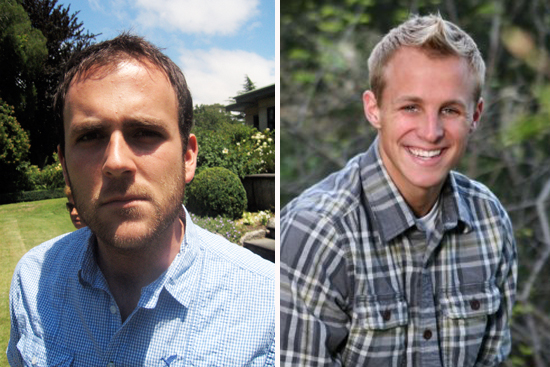COM’s Annual Great Debate
Does corporate money threaten the integrity of American politics?

Last January’s 5-4 Supreme Court ruling that the government cannot limit corporate funding of independent political broadcasts in candidate elections set off a firestorm. Supporters of the landmark decision in Citizens United v. Federal Election Commission hail it as a victory for free speech, arguing that the government has no authority to regulate political speech. But critics of the decision lament that corporate money could threaten democracy.
Tonight, students and well-known national experts will take on the topic at the College of Communication’s annual Great Debate, which poses a timely issue to a panel of experts and students for spirited discussion. Tonight’s debate asks: Does the Infusion of Corporate Money into Political Campaigns Threaten the Integrity of the American Political System? Austin Bay (CAS’12) is part of the team arguing yes, donations do threaten the political system. Graduate student James Robinson (COM’12) is on the team arguing the negative.
The students will be joined by professionals in the field. With Bay on the affirmative side are Thomas E. Mann, a senior fellow in governance studies at the Brookings Institution, a Washington, D.C., think tank, and Graham Wilson, a College of Arts & Sciences professor and chair of political science. Arguing with Robinson that corporate money does not threaten the political system will be Allison R. Hayward, vice president of policy of the Center for Competitive Politics, and John Samples, director of the Cato Institute’s Center for Representative Government.
At the end of the two-hour event, moderator Robert Zelnick, a COM journalism professor and former longtime ABC News reporter, will ask the audience to vote by moving to either side of the Tsai Performance Center.
Zelnick says he chose the topic for COM’s 28th Great Debate because he wanted something related to the midterm elections. Since the debate was scheduled for the week after Election Day, he “chose a topic that would hold people’s interest,” he says, “and would not have been exhausted in the ‘who won, who lost, who’s in great shape, etc.’ that usually fill our time.”
“When you start analyzing who has contributed and which group has raised the money and who is the beneficiary, it’s amazing how it evens out over time,” Zelnick continues. “You have a huge effort by labor and government employees, who are just phenomenal at raising and disseminating money.”
During this year’s elections, Goldman Sachs gave $1.2 million to support the Republican Party, while the National Beer Wholesalers Association contributed $1.5 million in support of the Democrats. These are just two examples of how much corporate money is being injected into the political system.
Bay plans to base his argument on the idea that corporations have more political clout than individuals, and therefore have greater ability to influence lobbyists. The United States faces many important issues, he says, and people should be concerned about how corporations and the wealthy can so greatly influence the country’s agenda. “If a company is throwing money behind prohibiting prioritizing the health care industry,” he says, “we should have a say in that.”
Robinson feels differently. As a New Zealander, he brings a unique perspective to the debate. In his country, Robinson says, there isn’t such a fuss surrounding elections. “I think people say that money ruins everything in the American political system, but there are things in the system that don’t have to do with money, such as public opinion, education, and global knowledge,” he says. “There should be some sort of limit as to how much you can donate, but I’m not sold about how much damage it does.”
The debate will likely draw heavily from January’s Supreme Court decision, which lifted a federal ban on direct corporate funding of political broadcasts in political campaigns within 60 days of a general election or 30 days of a primary election. President Obama spoke out firmly against the ruling, calling it “a major victory for big oil, Wall Street banks, health insurance companies, and the other powerful interests that marshal their power every day in Washington to drown out the voices of everyday Americans.” (Ironically, Obama was the first major candidate to win an election without public funding since the system was created in 1976 after Watergate.)
Bay and Robinson both acknowledge some predebate jitters. Bay says he’s been preparing by reading up on Supreme Court cases and scholarly articles, as well as consulting friends for their opinions on the issue. “I’m excited. The panel is stacked with academics and professionals, and I’m going to be challenged,” he says.
After being asked to participate by Zelnick, Robinson says, he initially underestimated the undertaking. As a graduate journalism student, he considers himself “fairly well versed,” he says, but “it took me a while to realize this was an event of magnitude. I saw a advertising poster with my name on it, and I started to get a bit nervous about it.”
“I think we’re going to have robust and important debate for anyone who wants to come watch,” Zelnick predicts. “There was a major Supreme Court decision on the topic recently, and the ramifications of that decision will be felt long into the future.”
The Great Debate will be held from 6:30 to 8:30 p.m. on Wednesday, November 10, at the Tsai Performance Center, 685 Commonwealth Ave. The event is free and open to the BU community.
Amy Laskowski can be reached at amlaskow@bu.edu.

Comments & Discussion
Boston University moderates comments to facilitate an informed, substantive, civil conversation. Abusive, profane, self-promotional, misleading, incoherent or off-topic comments will be rejected. Moderators are staffed during regular business hours (EST) and can only accept comments written in English. Statistics or facts must include a citation or a link to the citation.